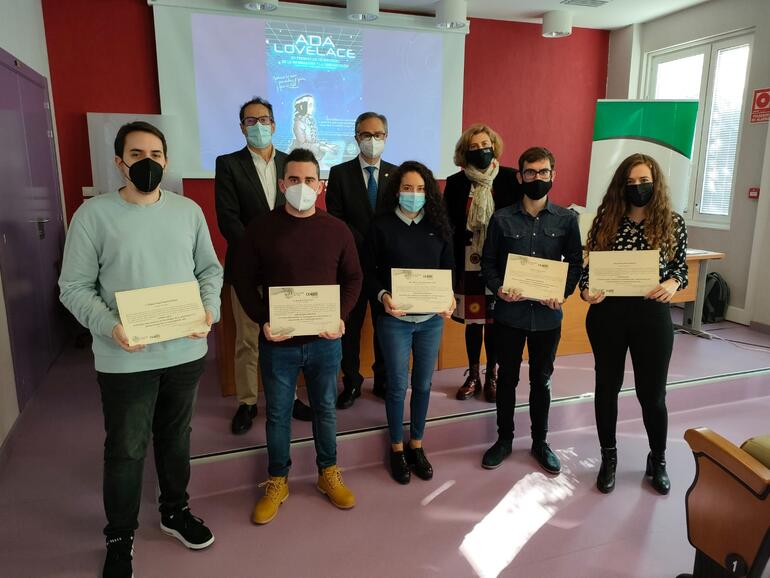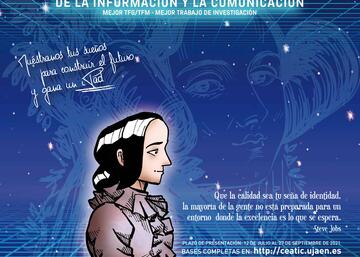04/11/2022

The Vice-Rector for Digital University of the University of Jaén (UJA), María Teresa Martín Valdivia, presided over the award ceremony of the VII Ada Lovelace Awards, organised by the Centre for Advanced Studies in Information and Communication Technologies (CEATIC) of the academic institution.
The ceremony was also attended by the Director of CEATIC, Luis Alfonso Ureña López, and the Professor of Telematics Engineering at the University of Alcalá, who gave a lecture, Ramón Velasco Pérez.
In the category of 'Best Final Degree Project', the prize went to María Josefa Fernández Guillén, for her work 'Design of a Vital Signs Telemonitoring System'. Honourable mentions went to: Miguel Ángel Anguita Molina, for his work 'Development of a remote control and vision-guided autonomous navigation system for a hexopod robot', and Alicia Vázquez Ramos, for her work 'Development of a framework for differential evolution'.
In the category of 'Best work of initiation to research', the winner was Juan de la Torre Cruz, for his work 'Signal processing algorithms based on Non-negative Matrix Factorization applied to the separation, detection and classification of wheezing in single-channel respiratory audio signals'.
Finally, in the category of 'Best Master's Thesis', the prize went to Alfonso López Ruiz, for his work 'Simulación de escaneados 3D' (3D scanning simulation). There was a special mention for Gema Parra Cabrera, for her work 'Studies, design and generation of a prototype for geometric fracturing of bone models from 2D fracture patterns'.
Conference
Prior to the awards ceremony, the conference entitled 'The Magnificent Seven' was given by Juan Ramón Velasco Pérez, Telecommunications Engineer and Doctor in Telecommunications Engineering from the Polytechnic University of Madrid. As a researcher, he coordinates the Networks and Intelligent Systems Research Group, where he works on the use of the Internet of Things for the early detection of health disorders. Throughout his professional life he has participated in 50 research projects (more than 30 of them as principal investigator), with both public and private funding, and has more than 150 scientific publications.
The Magnificent Seven
The speaker explained that the gender bias in Information and Communication Technologies "is more than evident. Everyone knows a few names of people who have made possible the level of digital interconnectedness we enjoy today. And most of those names are male. It might seem that there have been no women who have been responsible for these developments; nothing could be further from the truth". In the talk, the audience learned about the life and work of seven Magnificent Women, "seven female engineers who have earned, on their own merits, the recognition of this digital society in which we live," she said.

